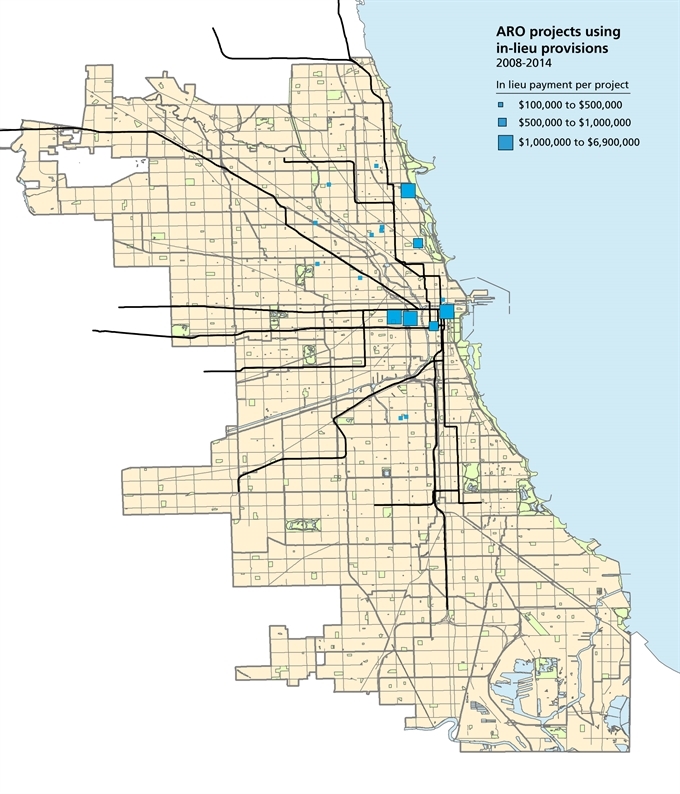
Flickr user Zach Ellerbrook (cc)
When the City of Chicago’s Dept. of Planning and Development released its Five-Year Housing Plan in early 2014, it was encouraging to see a commitment to explore how to strengthen the Affordable Requirements Ordinance. Enacted in 2003 and amended in 2007, the Ordinance mandates that any private-market residential development with more than 10 units must set aside 10 percent of units as affordable or donate $100,000 per required unit to the City’s Affordable Housing Opportunity Fund. This fee in lieu of building the actual units is then used to fund affordable units elsewhere, often on the city’s South and West sides.

Source for both maps: City of Chicago, Data Portal, City of Chicago Supported Affordable Housing Developments
When the Chicago Rehab Network and other advocacy groups began advocating for this legislation in the late 1990s, the effort was seen as one component of a comprehensive housing policy, one that would allow for affordable units in profitable housing markets while giving developers the flexibility to contribute funds that would advance affordable housing production throughout the city. Eleven years later, the need is still great. According to a 2014 report from the National Low Income Housing Coalition and Housing Action Illinois, just 27 affordable units are available for every 100 extremely low-income renter households in the Chicago metropolitan area.
Over the years, the Ordinance has accomplished one of its goals much more than the other: While the requirement has generated $19 million “in lieu of” fees since its inception, only 184 actual units have been built in profitable markets. As we’ve noted before when celebrating the inclusion of affordable units in the former Children’s Memorial redevelopment, rising inequality in the city of Chicago demands that the Affordable Requirements Ordinance deliver more balanced results. In this series, we will explore a variety of ways to strengthen this ordinance and equip it to deliver results that Chicago residents desperately need. At the Metropolitan Planning Council (MPC), we’ve spent 80 years partnering with communities, businesses and government to come up with solutions to problems just like this, and we look forward to partnering with the City of Chicago and advocates around the region to help balance our housing stock.
Check out the other posts in MPC's Strengthening Chicago’s Affordable Requirements Ordinance blog series: